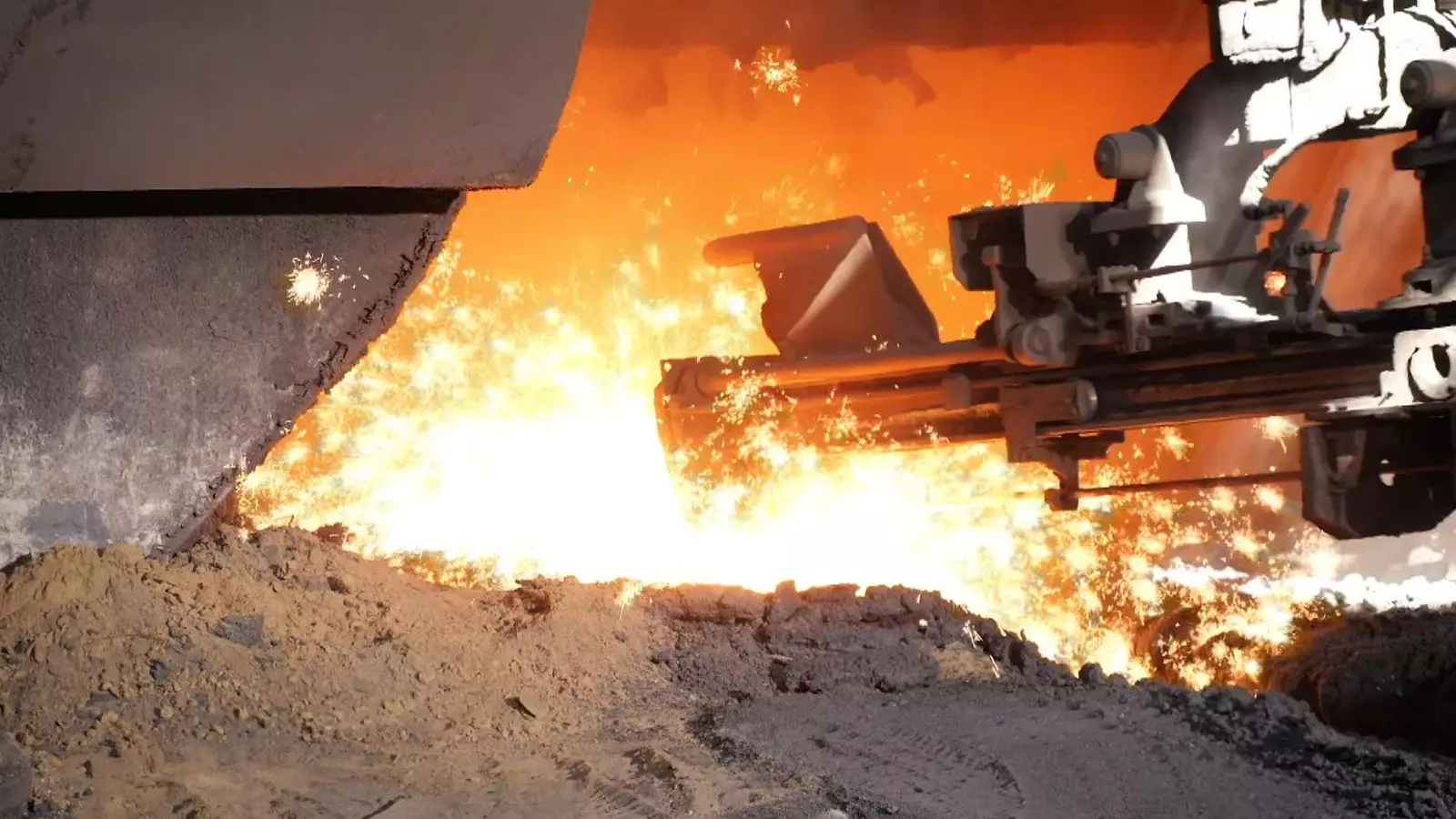The fate of British steel manufacturing hangs by a thread, threatening to sever the already weakened industrial backbone of the nation. The end of an era is looming as Jingye, the Chinese conglomerate that owns British Steel’s pivotal operations in Scunthorpe, has abruptly ceased supply chains integral for the blast furnaces’ operation. This drastic decision is not merely a business maneuver; it signals the potential demise of Britain’s last domestic virgin steel producers. The implications are monumental—not just for employees and their communities but for the very fabric of national industrial strategy.
The loss of these blast furnaces would be catastrophic. It would render the UK more reliant than ever on external sources for a crucial material that underpins infrastructure and defense capabilities. To grasp the gravity of this situation, one should not merely view it as an industrial concern; it reflects a deeper malaise in Britain’s capacity to self-sustain in strategic sectors. The looming closure stands counter to the ideals of a nation striving for sovereignty, placing the UK at the mercy of foreign steel suppliers.
The Flawed Negotiations: A Government’s Misstep
The recent talks between the British government and Jingye ended in failure, underscoring a profound disconnect between exigent economic needs and governmental action plans. The proposal of offering £500 million in public funds aimed at upgrading to more environmentally friendly electric arc furnaces was rejected outright. While the investment promised to cut carbon emissions significantly, it also pointed to a deeper systemic issue within the UK government: a reluctance to confront foreign ownership of critical industries aggressively.
In stark contrast, Tata Steel’s proactive approach to safeguarding its operations in Port Talbot indicates that the market is moving away from traditional methods of steel production. The rejection of government assistance from Jingye is a cry for a more innovation-driven and sustainable strategy, yet it was met with closed doors and missed opportunities. The collective national psyche should be questioning why a foreign entity is unwilling to invest in the future of British industry while simultaneously holding the British economy hostage to external fluctuations.
The Nationalization Debate: A Path to a Sustainable Future?
As the specter of closure looms, discussions of nationalization have emerged, albeit reluctantly. The prospect of the UK government taking a hands-on approach to maintain these critical operations raises significant questions. Can the state effectively manage what has proven to be a contentious asset? Critics argue that nationalization would expose taxpayers to long-term liabilities and risks of a loss-making enterprise. However, by failing to act, could the government not be inviting a greater risk: the wholesale collapse of domestic steel manufacturing, leading to an over-dependence on imports and jeopardizing ongoing infrastructure projects?
The implications of this decision stretch beyond mere economics. They cut to the heart of national resilience and sovereignty. In an era where geopolitical tensions are escalating, should Britain find itself unable to produce its own steel, it risks becoming a pawn in global power plays. This dire necessity for self-sufficiency cannot be overstated, especially in the face of potential trade wars and the fragility they engender.
The Public’s Role: Awakening to the Industrial Crisis
The current crisis shines a spotlight on a broader societal issue: the public’s level of awareness and engagement with the fate of domestic industries. The loss of steel production is not merely an economic issue; it is an existential one that warrants public discourse and activism. Citizens must demand accountability from their government, urging it to explore innovative and sustainable solutions to revive and protect national industry.
Educating the public about these challenges is paramount. Steel is interwoven into the daily lives of many, yet the complexities of steel production and its critical role in infrastructure often go unnoticed. This negligence could lead to a generational disconnect, where upcoming leaders may not appreciate the value of a resilient local supply chain. Mobilizing public opinion around these themes is essential if Britain is to reclaim its industrial narrative.
Britain stands at a watershed moment. Without immediate intervention and re-envisioning of its steel industry, the country risks not only the loss of its last blast furnaces but also the broader existential priority of self-sufficiency in an increasingly unpredictable world. The time for decisive action is not merely pressing—it is critical.

Leave a Reply